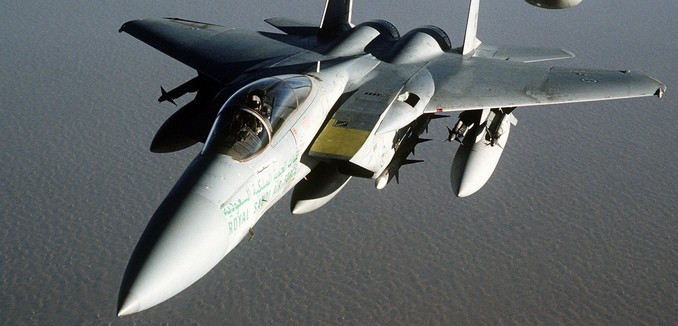Conflicts in the Middle East are pushing nations in the region, led by Saudi Arabia, into an arms buying spree that could reach an unprecedented $18 billion in 2015, The Times of Israel reported Friday.
“(The) Saudi-led military operations in Yemen (are) the latest manifestation of Arab interventionism, a trend that has been gaining momentum in the Middle East since the uprisings of the Arab spring,” Tobias Borck, an analyst at the UK’s Royal United Services Institute, told the Guardian. “Middle Eastern countries appear to be increasingly willing to use their armed forces to protect and pursue their interests in crisis zones across the region.”
Borck warned that the increased trade “neglects the regional political dimensions, with arms sales taking place with a lack of regard for that context and without long-term strategic awareness.”
He noted that the sales could also be encouraging proxy conflicts in the region, with Russia seeking to counter Western support to regional allies by increasingly backing its own partners such as Iran and Syria.
It was reported last month that Saudi Arabia had become the world’s biggest arms importer.
Though not addressed in the Times’ article, Iran has been aggressively asserting itself in the region, especially in Yemen and Iraq, benefiting, in part, from the funds freed up as a result of the nuclear negotiations with the West.
In On This Battlefield, the U.S. and Iran Work Hand in Hand, which was published in the April 2015 issue of The Tower Magazine, Michael Pregent describes how Iran uses Iraq’s instability to further its own influence.
It is necessary to look clearly at the situation we have arrived at. In 2010, a report of Suleimani on the ground in Iraq would have meant a wake-up call to the U.S. president. Now Suleimani is leading victory parades after taking back areas from ISIS. Five years ago, IRGC was killing Americans through its proxies in Iraq. Now we are providing them air cover as they push into the Sunni heartland to settle scores dating from as far back as the Iran-Iraq War.
ISIS presents an extraordinary opportunity for Iran to increase its influence over the government of Iraq. And let’s not kid ourselves. Iran has no interest in defeating ISIS in Iraq or in Syria. It needs the ISIS threat to Baghdad and Damascus in order to make both capitals dependent on Iran for their survival.
Iran had no intention of improving the security situation in Iraq during the U.S. occupation, and to think it has changed now is naïve. All we are seeing now is an accelerated, concerted effort by Iran to get everything it can while Washington is looking the other way.
[Photo: Ian Burt / Flickr ]




